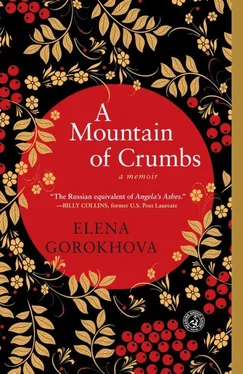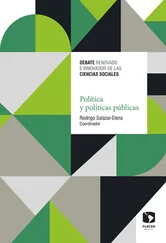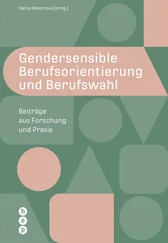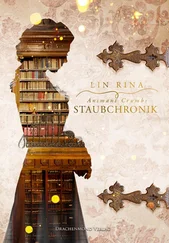Dr. Kremer rubbed his forehead and looked around the room. My mother followed his gaze: a little metal stove empty of wood, boot prints across the plywood hammered against the window frame, a map of the pre-war Soviet Union on the wall left by the school principal, green and brown in the middle, blue in the north, with a big red star for Moscow, where Dr. Kremer grew up.
“Three days,” he said. “That’s all you have.” He walked to the desk and leafed through several papers that looked like military orders, with ominous stamps and resolute illegible signatures. “And Dr. Gladky …” he turned to my mother.
“Maltseva,” she said, surprised at how strange this new name sounded in her mouth as her own. “I just got married.”
Staring at the director’s grayish face across from hers, she thought that this might be the moment when he announced that she would be court-martialed for breaking military rules. My mother wasn’t naïve about the swift hand of punishment. Uncle Volya, arrested five years earlier, had been shot attempting to escape from a camp in Vorkuta. That was what the NKVD letter said: “shot attempting to escape.” As much as she tried, my mother couldn’t imagine soft and asthmatic Uncle Volya climbing over walls or running. Was he guilty, after all? Was his punishment the price of maintaining order?
Ready to suffer the consequences of her insubordination, she watched Dr. Kremer get up and move the papers to the side. She watched the corners of his eyes crinkle slightly.
“Congratulations on your marriage,” he said.
SEVEN MONTHS PREGNANT IN, September 1942, my mother was demobilized from the military hospital. She packed up the uniform that no longer fit and, with her sick husband, returned to her parents’ Ivanovo apartment, now big enough for all since two of her brothers were gone. Vova was in the Far East, from where they recently received his letter. Yuva was still silent, and my mother’s fear that he was dead had turned to conviction. The third brother, Sima, transferred to the Belorussian front, had been wounded and was now back home with complications from a piece of metal that had created an abscess and was beginning to cause an infection in his brain.
It made my mother furious to think that a doctor at a front hospital had failed to operate properly, leaving a shard of a grenade lodged in her brother’s lung. She remembered herself at the beginning of her career, leaving a sliver of shrapnel in her first husband’s butt, but a butt wasn’t a vital organ, and although her first Sasha—she wanted to believe—may have felt an ache now and then, it wasn’t her surgical failure that would eventually kill him.
But this, the fragment in Sima’s lung, was killing him. Her parents, especially her mamochka , spoke of his recovery, but my mother knew he wouldn’t survive. As Sima, now blind and delirious, lay in the room where all the three brothers grew up, she sat by his bed taking his temperature and peering into his throat, pretending that whatever small medical procedures she performed could make a difference.
Day after day, she sat by Sima’s bed thinking about her brother and her husband, both dying. She couldn’t cure them, so she concentrated on doing what she could do. She sold her ration of four hundred grams of bread and with that money bought fifty grams of butter, which, she hoped, might boost her brother’s and her husband’s chance for health. She watched Sima burn with fever and move his cracked lips as if wanting to say something; she heard Sasha’s wet cough roll in his chest like the cannonade they heard at least once a day. Whom was she trying to fool? What she did was futile, she knew, but it required sacrifice, and that was the least she could do for her brother and her husband.
When Sasha began spitting up blood, he was admitted to the Ivanovo hospital, my mother’s alma mater. She consulted the head of the TB clinic and her former professor, who concurred that after his release from the hospital, Sasha must leave home since he could not stay in the house with a newborn. But before he left, he took both the butter and the bread, added a few bars of soap from my grandmother’s closet, and sold them to buy himself a jar of moonshine.
Sima died at home on November 1, 1942. My mother washed him and shaved him and dressed him for the funeral. Since she was eight months pregnant, her parents decided that it would be too traumatic for her to go to the cemetery, an invitation to premature labor. She stood on the porch, watching my grandfather crack a whip in a swift strike, watching the horse snort and jerk forward as the cart with my grandmother, slumped against Sima’s coffin, slowly bumped onto the road, rutted by recent rain.
Sasha left on November 7, three weeks before my sister would be born, on the Day of the Great Socialist Revolution, which is in peaceful times an occasion for a citizens’ parade, for people marching in rows, and banners flapping happily in the wind. In gray air pocked with drizzle, they walked through the ruins of her town and stood waiting for the train, my big-bellied mother and her second husband, who would die of TB in his hometown five years later, never having seen his daughter. When a plume of smoke billowed out of the stack and a spasm lurched through the cars, from the engine all the way to the mail wagon, she took a step toward the clattering wheels and raised her arm in a last good-bye. She waited until the train shrank to toy size, until the only smoke she could see was a streak of soot rising from an apartment building bombed the day before.
MY FATHER, FINALLY, PROMISED stability. He was fourteen years older than my mother, a widower with an eighteen-year-old daughter. During one of her Ivanovo hospital rounds in 1950, my mother’s girlfriend Vera, who had tried to fix her up with men before, noticed a stomach-ulcer patient, undoubtedly a man of distinction because instead of an auditorium-size ward he’d been placed in a room with only three other beds.
“Ilya Antonovich seems like a very serious man,” Vera whispered to my mother, respectfully using a patronymic after his first name. “He is a Communist Party member and has just been assigned to head a technical school in Leningrad. He needs a woman to take care of him,” she added. “ Kozha da kosti —skin and bones.”
Perhaps it was the promise of Leningrad that did it. Her native Ivanovo had lost its luster—ravaged by the war, marred by the memory of one brother dead and the other missing, by the image of the train carrying away the husband she would never see again.
My father was reticent about his past. It was unremarkable and dull, he said. He’d participated in the collectivization from 1929 to 1933, when Stalin purged all of the wealthy peasants and turned the country’s agriculture into collective farms, sad villages of desperate, perpetually inebriated country folk presided over by Red Army officers whose only experience with farming was riding the horses the army had supplied. Due to his political propaganda work, my father was exempt from fighting in the Great Patriotic War, but not from the scurvy he contracted in the mid-1940s. He was sent to Ivanovo to lift the people’s spirit, damaged by the war. He came from a tiny village in the most eastern part of European Russia, but he never spoke of his parents and no one in my family even knew if he had any siblings.
For a man of fifty-one he was good-looking—gaunt, sharp-featured, hazel-eyed. He walked with a light gait and spoke in unhurried sentences that made one forget the war was barely over. He sounded positive and solid. A two-room apartment on the top floor of a newly constructed building in Leningrad was already waiting for them, entirely their own, unlike other apartments where three families huddled in three rooms and regularly collided in a single communal kitchen and bath. With her recent PhD, my mother could easily find a job teaching anatomy in one of Leningrad’s medical schools. Besides, my eight-year-old sister Marina, her second Sasha’s daughter, needed a father.
Читать дальше












